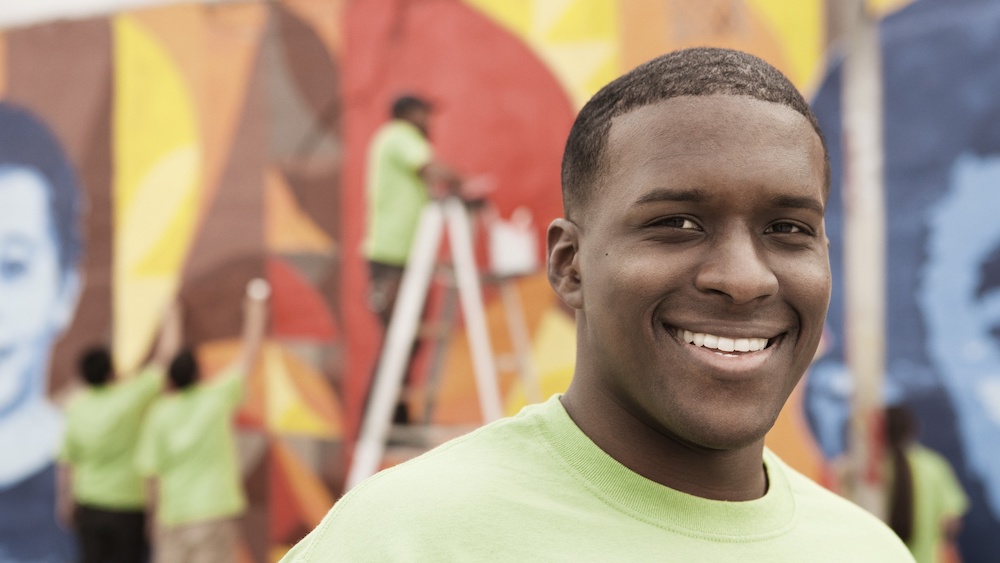If you’re interested in sharing your opinion on any cultural, political or personal topic, create an account here and check out our how-to post to learn more.
Opinions are the writer’s own and not those of Blavity's.
____
As a longtime resident of Oakland, California, I am worried about unhoused people in my beloved city. The Bay Area is becoming a more and more unaffordable place to live, and too many people, too many families and kids, are living on the street.
I wanted to do something. I did a little research and identified a great Black-led nonprofit, the East Oakland Collective, that’s providing food and crisis services to unhoused people and families. I made a donation and intend to support EOC every month.
Given all of the huge problems facing the communities we care about, it can be overwhelming to try and figure out how we can help. People are more interested than ever in social justice and social change, which is exciting. As a communications professional and storyteller who has worked with lots of social and racial justice organizations, I find the best way to start is by identifying one or two issues that really inspire you or keep you up at night, and then finding out who in your community or the country is doing something about it.
Right now, for example, we are seeing an all-out assault on voting rights for Black people; state lawmakers and their supporters are trying to undermine the political power of our communities. It’s a huge problem — but, thankfully, at the same time, there are really courageous people defending Black voting rights through advocacy, organizing and other work. So whether your issue is voting rights, ensuring everyone has a place to live or something else, here are three ways to help changemakers win justice.
1. Support directly impacted people and communities — and follow their lead.
Time and again, it’s people who are directly impacted by injustice who have led the way to solutions. Find organizations that don’t just extract stories from impacted people, but where directly impacted people are at the center and driving change. This means that an organization’s leadership, staff and volunteers are truly representative of the community it was created to serve. It means respecting their hard-won knowledge and solutions, whether it is systems change or community care, listening to their hopes and dreams, and providing the support they need to make them real.
2. Stick with groups for the long haul.
It’s too often the case that supporters engage in one-time transactions or episodic relationships with nonprofits — especially when an issue goes viral. We’re in and then we’re out. But, it can take years for so many heroic changemakers and organizers for equity and justice work to tackle big issues and big problems, even without much attention, and they need sustained support and engagement to get results.
Last year, George Floyd’s murder galvanized a national push for racial justice. But as we have seen in the aftermath, real, transformative change will not be easy and it will take time. The work to build power and change unjust systems is a year-in-and-year-out process of organizing, canvassing and engagement. Even if mainstream attention may have waned, there are groups throughout the country carrying on the work of racial justice, youth and criminal justice reform and police reform. And they still need our support.
When you find an organization or cause you want to support, commit to staying involved in some way for the long haul. That way, you’ll have a front-row seat on how to make a sustainable, lasting difference.
3. Do what they ask you to do.
Beyond financial support, it’s a good bet that groups and organizers will also ask you to get involved in their work in other ways — like contacting lawmakers about an issue facing the community, canvassing community members about their opinions and perspectives, or participating in community actions. Understand that unjust systems don’t create themselves and won’t reform themselves, so commit to the work of dismantling inequitable systems. Make time to get involved in the work, and join with others to take action and make your voice heard.
Supporting changemakers is really about showing love and respect. It means giving people and organizations the resources they need (including money and time) to work for justice. And it means trusting their instincts and their ideas about what it’s going to take to win.
Changemakers across the country are innovating ideas and doing what they can every day to address issues like racial injustice, housing, criminal justice reform, gender justice, the racial wealth gap, health inequities, educational inequality — dismantling the barriers to opportunity that stand in the way of so many of us. We don’t so much need new ideas, we need the sustained will and commitment that can help us make lasting progress.
